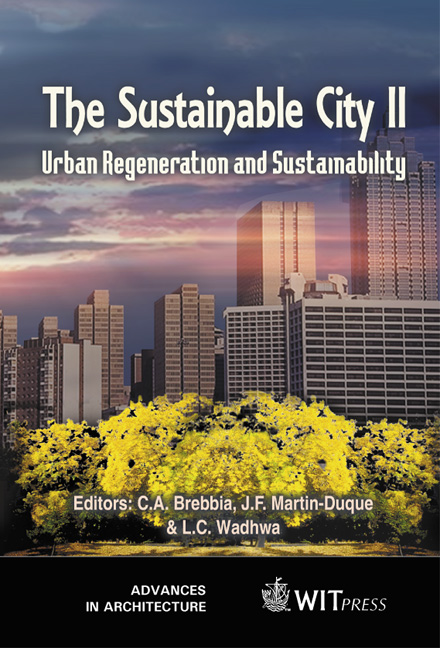Participatory Development And The Sustainable City: Community Forestry In Detroit
Price
Free (open access)
Transaction
Volume
54
Pages
Published
2002
Size
615 kb
Paper DOI
10.2495/URS020321
Copyright
WIT Press
Author(s)
K E Vachta,& M H McDonough
Abstract
The Urban Resources Initiative (URI/DETROIT) was a pilot application of participatory development strategies to address environmental, economic and social problems in Detroit. Deindustrialization and related forces have generated approximately 93.2 square kilometers of vacant land within Detroit. Often targeted for illegal waste dumping, the resulting health and safety problems are cited among residents' most pressing concerns (Fitzgerald [1]). URI/DETROIT worked in partnership with community-based organizations to transform some of these sites into important local resources. Members of the participating organizations identified local needs, interests, skills, resources and goals and designed appropriate forestry-based projects for their communities. Through these efforts, once dangerous lots have become community tree nurseries, agroforestry gardens and orchards. In turn, the community objectives served as criteria for assessing organizational empowerment, defined by Saegert and Winkel [2] as the ability to achieve collectively determined improvements in community conditions. Participants reported success in addressing environmental concerns, including aesthetic and safety objectives. Most projects had not yet produced direct economic benefits. However, one group reported a dramatic improvement in property values which they attributed to their community orchard, and most did recoup maintenance expenses. Groups also reported increased participation among underrepresented groups, improved strategic planning skills and dissemination of leadership skills across a larger core membership. The results indicate that a wider
Keywords





